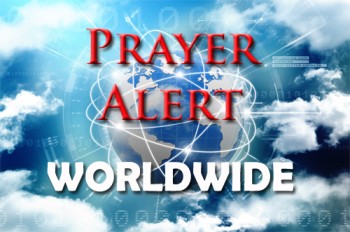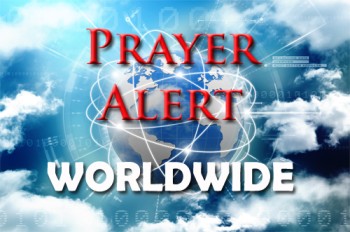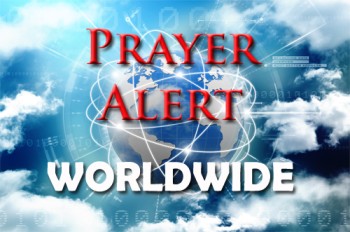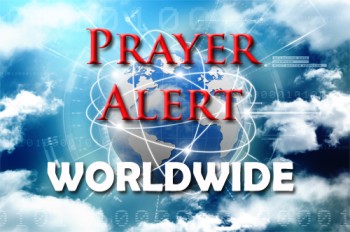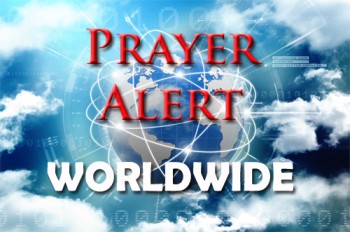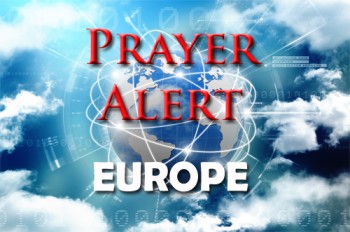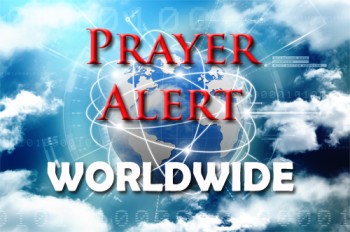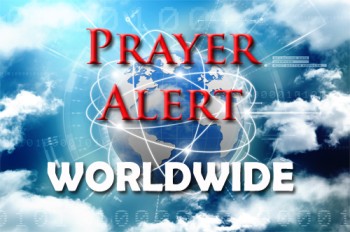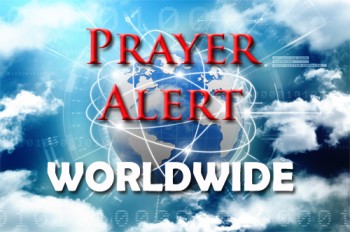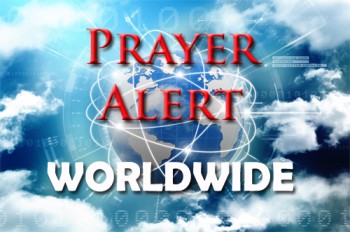Displaying items by tag: Africa
Sudan: shelling kills at least 120
On 13 January at least 120 people were killed by indiscriminate shelling in Omdurman, with the death toll expected to rise. Sudan's civil war, between the army and the paramilitary RSF, began 21 months ago. It has claimed tens of thousands of lives, displaced over twelve million, and left the country on the brink of famine, described by the UN as a humanitarian disaster. Both sides have been accused of indiscriminately targeting civilians, including health workers, as fighting devastates Omdurman and neighbouring areas. Volunteers face severe challenges in accessing affected regions, and medical supplies are critically low. Recent weeks have seen the army intensify efforts to reclaim territory, seizing areas and confiscating weapons, while the RSF counterattacks. The recent skirmishes have forced emergency response rooms, which support local communities, to shut several health centres, affecting provision of medical services to thousands of residents.
South Africa: rescue operation at besieged illegal gold mine
A rescue operation is under way at a gold mine which has been under police siege since Aug as part of a government initiative targeting illegal mining, an industry valued at 60 billion rand a year. The siege, which included cutting off food and water, drew criticism from human rights organisations. In December a court ruled that volunteers could send down supplies to the trapped men, and recently ordered the state to launch a rescue operation. Rescuers, using metal cages to recover people from depths of over 2,000 metres, have now recovered 78 bodies and 216 survivors, who face charges of illegal mining, trespassing, and immigration violations. Miners' rights groups report that hundreds more survivors and dozens of bodies remain underground.
Mozambique: post-election violence, calls for peace
Violence has gripped Mozambique following disputed elections on 9 October; the situation worsened after Daniel Chapo was officially declared president on 23 December. Adding to the feeling of insecurity, on Christmas Day over 1,500 prisoners escaped from a maximum-security prison in Maputo. Violence, deaths, and looting have driven thousands to flee to Malawi and Eswatini, straining resources when those countries are already grappling with drought and poverty - and the aftermath of Cyclone Chido, which devastated the region. In northern Mozambique, ongoing attacks in Cabo Delgado since 2017 have already displaced hundreds of thousands. Refugees face dire conditions in overcrowded shelters, with inadequate food, water, and sanitation, raising the risk of disease. Christian organisations are mediating peace efforts and engaging in prayer: Tearfund has joined their call for dialogue and reconciliation, urging Christians worldwide to pray for peace in Mozambique and relief for the displaced.
Mayotte: aftermath of Cyclone Chido
France has intensified relief efforts in Mayotte, with 120 tonnes of food scheduled for distribution. The Indian Ocean archipelago, France's poorest territory, has been under a curfew due to looting and lawlessness following Cyclone Chido’s destructive landfall. Thousands of residents in the capital Mamoudzou are working to repair their homes, while entire communities in the shantytowns have been destroyed. Although the cyclone, the most powerful in ninety years, has led to numerous deaths, with hundreds feared dead, only 22 fatalities have been confirmed due to the inaccessibility of many areas. The situation is further complicated by uncertainty around the population size, with many undocumented migrants from Comoros and Madagascar. Health experts say they are bracing for a surge of disease as dead bodies lie unrecovered and people struggle to access clean drinking water.
Nigeria: authorities seek to combat oil theft
In the Niger Delta, rampant oil theft continues to threaten local livelihoods and the national economy. Armed groups siphon crude oil from pipelines in the region, often operating with impunity and even security cover. These activities cause environmental devastation, health crises, and economic losses. In 2022, Nigeria lost $23 billion to oil theft, so that it lost its position as Africa's top oil exporter. The authorities are committed to fighting this problem by deploying gunboats, engaging vigilantes, and supporting the navy. Increased oil production, now averaging 1.8 million barrels per day, has been attributed to these efforts. However, poverty and unemployment continue to drive pipeline vandalism. Nigeria's inflation rate, worsened by a devalued naira, remains high, but there is official optimism that rising oil output will stabilise the economy.
France: author guilty of downplaying Rwandan genocide
French-Cameroonian author Charles Onana has been found guilty of downplaying the Rwandan genocide, which resulted in the deaths of approximately 800,000 people in 1994. He was fined €8,400, and his publisher was fined €5,000. The two must also pay €11,000 in compensation to human rights organisations which filed the lawsuit. A Paris court ruled that Onana’s book, published in 2019, trivialised and contested the genocide in an ‘outrageous manner’, violating France's laws against genocide denial and incitement to hatred. The book suggested that the narrative of a planned genocide by the Hutu government was a ‘scam’, a claim criticised for distorting historical facts. Rwanda's foreign minister has welcomed the court’s decision as a victory. This is the first time in Europe that those denying the genocide have been punished under French law.
Uganda: mental health crisis at refugee camps
The mental health crisis at Kiryandongo refugee camp is escalating, with suicides and suicide attempts surging. Between January and October 2024, 41 suicides and over 130 attempts were recorded, highlighting the profound psychological distress faced by refugees. Many are haunted by memories of past trauma, such as bombings. These ongoing fears disrupt daily life and contribute to widespread mental health struggles. Despite the existence of psychosocial support programs, resources at the camp are insufficient to meet the overwhelming demand. With over 1.7 million refugees in Uganda, local healthcare services are under immense pressure, but specialised care is often inaccessible due to high costs. The UNHCR is calling on governments, the private sector, and international donors to increase funding for mental health programs to address this urgent need.
Namibia: first-ever woman president elected
Netumbo Nandi-Ndaitwah, 72, has been elected Namibia's president, becoming the country’s first female leader. She secured 57% of the vote, avoiding a predicted run-off. Declaring her win as a mandate for ‘peace and stability’, Nandi-Ndaitwah continues her SWAPO party's 34-year dominance since the country's independence. However, opposition parties have disputed the results, citing technical issues such as ballot shortages and extensions of voting periods. Long queues left some voters waiting up to twelve hours, and critics claim that these problems violated election laws. The main opposition candidate, Panduleni Itula, who trailed with 25.5%, described the election as ‘neither free nor fair’. Nandi-Ndaitwah's political journey began in the 1970s independence movement, followed by a 1990 parliamentary debut and several ministerial roles. Despite SWAPO’s legacy, growing youth discontent highlights challenges ahead as Namibia grapples with unemployment and inequality.
South Africa: hundreds of illegal miners holed up underground
The authorities have arrested fourteen individuals, including a wounded teenage boy, after they emerged from an illegal gold mine in Stilfontein, where hundreds of miners remain trapped underground. The miners, called zama zamas, search abandoned mines for gold, often risking arrest, deportation, or violence. Operating in over six thousand defunct mines, they endure dangerous conditions, relying on contractors for food and supplies. This underground economy is dominated by criminal syndicates which exploit the miners, sometimes forcing them to work under threat. Efforts to remove the miners include blocking shafts and restricting supplies. Officials estimate 350-400 miners remain underground, but some reports put the number at as much as four thousand. The government is looking at ways of getting the miners out, but fears of poisonous gases and armed syndicates are complicating rescue plans.
Mali: former police chief sentenced by ICC
The International Criminal Court (ICC) has sentenced Al-Hassan Mahmoud to ten years in prison for war crimes committed during his tenure as head of the Islamic police in Timbuktu, Mali. He was found guilty of torture, overseeing public amputations, and organising brutal floggings, including of children, under the al-Qaeda-linked Ansar Dine group, which seized the city in 2012. The presiding judge described the sentence as ‘proportionate to the gravity of the crimes’, acknowledging the harm caused to victims. However, Al-Hassan was acquitted of charges of rape and sexual slavery: the ICC acknowledged that sexual violence had occurred, but said he was not directly responsible. Rights groups expressed disappointment, noting testimonies of women being raped in detention. In 2016 the ICC sentenced another Ansar Dine member to nine years for destroying Timbuktu’s ancient shrines.
